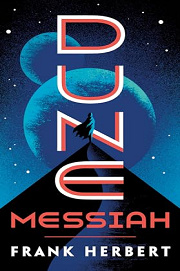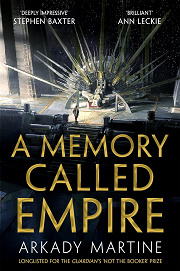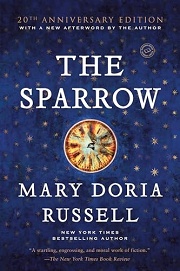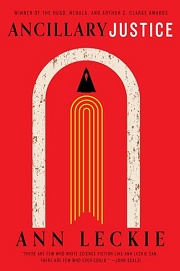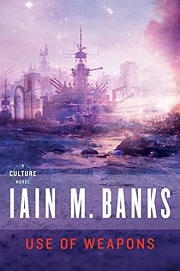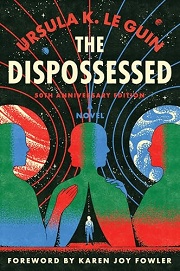Share your thoughts in a quick Shelf Talk!
Dune Messiah by Frank Herbert
Haunted by the consequences of empire and prophecy, a ruler on a desert world faces plots, betrayals, and the crushing weight of destiny. With political intrigue sharpened to a knife’s edge, Dune Messiah explores the cost of power in a stark, mesmerizing future.
Have you read this book? Share what you liked (or didn’t), and we’ll use your answers to recommend your next favorite read!
Love Dune Messiah but not sure what to read next?
These picks are popular with readers who enjoyed this book. Complete a quick Shelf Talk to get recommendations made just for you! Warning: possible spoilers for Dune Messiah below.
In Dune Messiah, did you enjoy ...
... knife-edge imperial politics, where every word can tip a throne?
A Memory Called Empire by Arkady Martine
If the covert alliance of Princess Irulan, the Bene Tleilaxu Face Dancer Scytale, Edric of the Guild, and Reverend Mother Mohiam hooked you in Dune Messiah, you’ll love how Ambassador Mahit Dzmare navigates the honeyed traps of Teixcalaan’s court. The way Paul’s every public gesture is weaponized against him finds an echo in Mahit’s need to read poems-as-policy, decode assassinations as diplomatic notes, and survive a succession crisis where culture itself is political leverage. It’s that same heady mix of intrigue, soft-power feints, and “win without seeming to move” statecraft.
... the collision of messianic expectation, faith, and the human cost of first contact?
The Sparrow by Mary Doria Russell
If Paul’s reluctant role as a living prophecy—flanked by a state religion he can’t fully control, haunted by the jihad he foresaw—gripped you in Dune Messiah, The Sparrow will devastate in the best way. Jesuit linguist-priest Emilio Sandoz journeys to Rakhat with an almost Pauline burden of purpose; what he finds shatters certainties and leaves him wrestling with theodicy as painfully as Paul staggers under prescience. Like Paul’s walk into the desert after the stone burner, Sandoz’s aftermath asks what faith means when destiny exacts an unbearable price.
... a ruler’s cold calculus and a protagonist whose morality bends around empire?
Ancillary Justice by Ann Leckie
If you were compelled by Paul Atreides as an emperor who makes terrible, necessary choices—and by Alia’s and Irulan’s shades of gray—Breq’s quest inside the Radch will hit that same nerve. As a fragment of a warship seeking justice against Anaander Mianaai, Breq weighs loyalty, collateral damage, and identity with the same ruthless introspection that marks Paul’s reign. The Radch’s imperial civility hides knives much like the Corrino court, and every moral stance is compromised by scale.
... a haunted operator’s inner war beneath grand designs and manipulative patrons?
Use Of Weapons by Iain Banks
If Dune Messiah drew you in with Paul’s psychic burden, Duncan Idaho’s resurrection as Hayt, and the Bene Gesserit/Tleilaxu/Guild tug-of-war over one man’s soul, Banks’s portrait of Cheradenine Zakalwe will resonate. Under the Culture’s Special Circumstances—puppet-masters as coolly meddlesome as Witches or Tleilaxu—Zakalwe’s missions peel back layers of trauma and identity. The psychological unmasking lands with the same intimate, devastating force as Paul confronting the trap of prescience and the cost of being used as a symbol.
... the moral burden of wielding transformative knowledge for a whole civilization?
The Dispossessed by Ursula K. Le Guin
If Paul’s choices about the jihad and his abdication after the stone burner—acts that weigh personal cost against the fate of billions—stuck with you, Shevek’s decision about how to share the ansible mirrors that ethical crucible. Le Guin probes what responsibility a single visionary has to power structures and to the powerless, much as Paul weighs Fremen devotion, Irulan’s political machinations, and the empire’s future. It’s less about battles and more about the conscience behind them.
Unlock your personalized book recommendations! Just take a quick Shelf Talk for Dune Messiah by Frank Herbert. It’s only a few questions and takes less than a minute.
